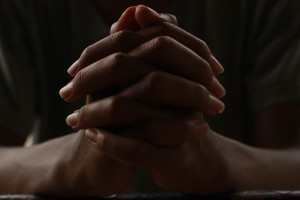
 By Shankar Raj*
By Shankar Raj*
Bengaluru: The Bharatiya Janata Party government in the state today tabled a tough bill that prohibits ‘unlawful religious conversion’ even as the Congress voiced serious concerns and the Christian community called the move as playing with fire.
The Karnataka Protection of Right to Freedom of Religion Bill, 2021, is to a large extent tougher than the one tabled by the Yogi Adityanath government in Uttar Pradesh and the governments in Madhya Pradesh and Gujarat.
The bill is expected to be taken up for discussion Wednesday.
The Bill aims to prohibit “unlawful conversion” from one religion to another by misrepresentation, force, undue influence, coercion, allurement or by any fraudulent means. The minimum punishment for unlawful conversion in Karnataka is three to five years and a minimum fine of Rs 25,000 — compared to a minimum of one-year jail term and Rs 15,000 fine in Uttar Pradesh.
The Bill also prohibits conversion by ‘promise of marriage’ and contains portions that were stayed by the Gujarat High Court earlier this year.
Section 3 of the Bill penalises anyone who “converts or attempts to convert, either directly or otherwise, any other person from one religion to another by use or practice of misrepresentation, force, undue influence, coercion, allurement or by any fraudulent means or by any of these means or by the promise of marriage.” Those abetting or conspiring for such conversions will also be penalised, the Bill says.
The Gujarat High Court had stayed a similar portion of the state’s law in August 2021, saying that the provision presumes that marriage is for the purposes of conversion, and it may deter many interfaith marriages where a spouse willingly wishes to convert.
Another section says that anybody who has been converted, or even knows a person who has been converted, can file a complaint. This includes the person’s family members, any blood relative, or a relative by marriage or adoption, or even an associate or a colleague of the person — any of them can lodge a complaint. However, under Gujarat and Uttar Pradesh’s laws, only family members and relatives (parents, brother, sister or any other person related by blood, marriage or adoption) — can file a police complaint alleging forced conversion.
Under the new Bill, the burden of proof to prove that there was no ‘illegal or forced’ conversion, or a forced conversion through marriage, lies on the person who carries out the conversion, or helps such a conversion. This part was stayed by the Gujarat High Court on the ground that this provision puts “parties validly entering into an interfaith marriage in great jeopardy,” by placing the burden of proof on them that their marriage is valid and not ‘just for conversion.’
In Karnataka’s bill, whoever is found guilty of conversion will face jail term of three to five years, and will also be liable to pay a fine of Rs 25,000. If the person who has been ‘illegally’ converted is a minor, a woman, or a person from a Scheduled Caste or Scheduled Tribe community, they face a jail term of three to 10 years and a fine of Rs 50,000. The UP law has prescribed less stringent punishment.
In case of a ‘mass conversion,’ which is defined under the law as ‘conversion of two or more people,’ the accused person can face three to ten years imprisonment and a fine of Rs 1 lakh. Moreover, an appropriate court can also order compensation of upto Rs 5 lakh, which will have to be paid by the accused to the victim of conversion.
The Bill says that any marriage done for the sole purpose of conversion shall be declared illegal and void.
Persons who want to willingly convert to another religion, as well as those carrying out conversions, need to submit a declaration of the same to the District Magistrate at least 30 days in advance. The District Magistrate will then put up the declaration on the notice board of the office and invite any objections. If there are objections, the DM can order an inquiry. Officials of Revenue or Social Welfare Department will be authorised to check ‘genuine intention, purpose and cause of the proposed conversion.’
If the conversion is cleared by the District Magistrate, the converted person again has to send another declaration, as well a copy of their Aadhaar or any ID card to the DM, within 30 days of converting.
*Shankar Raj is former Editor of The New Indian Express, Karnataka and Kerala, and writes regularly on current affairs.





